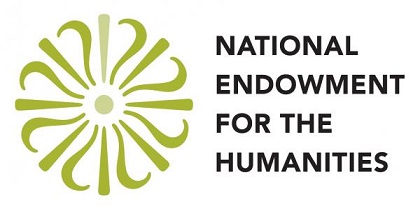March 5, 2019
Triton receives $100K grant to diversify Humanities curriculum

A recently awarded grant from the National Endowment for Humanities (NEH) will help support Triton College in the creation of new courses that better reflect the diversity of Triton’s students and community. The $100,000 Humanities Initiatives at Community Colleges Grant will allow the development of five new courses within Triton’s Social Science and English departments that will speak to changing global realities. The newly designed courses will afford students more options to earn the human diversity credit outlined in their degree requirements.
“We’re not just creating a curriculum that’s more reflective of global reality, we’re creating teaching methods that are more appropriate and helpful for our students,” said Triton College history and humanities professor Dr. Elizabeth Collins, one of the co-directors on the grant.
Dr. Collins is developing a non-western humanities course as well as a world mythology class.
“In world mythology we’ll cover every continent. It will have Native American mythology and classical Greek and Roman mythology, as well as cover Hindu traditions and Australian Aboriginal stories,” Dr. Collins said.
A Latin American studies course will be created by Social Science Department faculty member and grant co-director Maxi Armas.
“Students will study the history and challenges of immigration through a theoretical lens,” Armas said. “Every student has a perspective and they deserve to have the opportunity to share them.”
Other subjects will include a course on global feminism created by Social Science Department faculty member Dr. Christina Brophy and a Latino literature course created by English Department faculty member Paul Martinez. Developmental Education Department faculty member Gail Krahenbuhl will re-write developmental English courses to include more global perspectives.
“Given the demographics of our student body, we thought this was a good time to apply for this grant,” Armas said.
Triton is designated as a Hispanic Serving Institution by the U.S. Department of Education, with a student body made up of 59 percent minority students, including 40 percent Hispanic/Latino and 16 percent African-American students.
The NEH grant allows a three-year period for faculty members to develop the curriculum for the new humanities courses. Toward the end of that period, a public symposium will allow participating students and faculty to share their perspectives on the importance of globalized curriculum with colleagues and the community. The classes are expected to be available to students during the fall 2021 semester.
The National Endowment for the Humanities (NEH) is an independent federal agency created in 1965. It is one of the largest funders of humanities programs in the United States.
National Endowment for the Humanities Policy Statement
Any views, findings, conclusions, or recommendations expressed in this {article, book, exhibition, film, program, database, report, Web resource}, do not necessarily represent those of the National Endowment for the Humanities.
